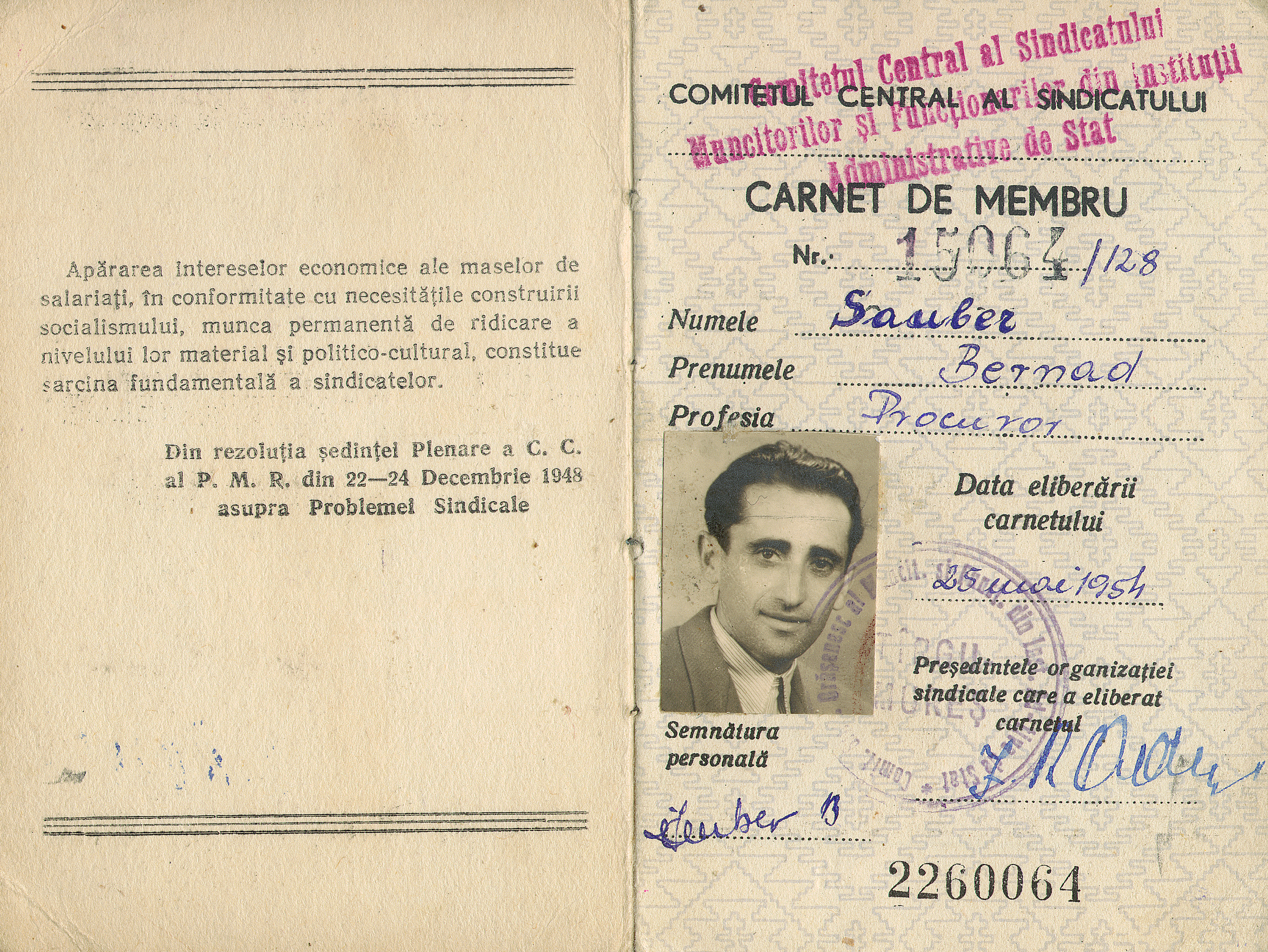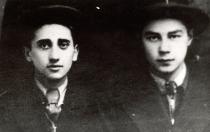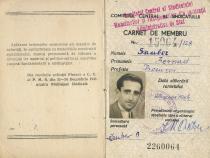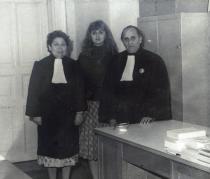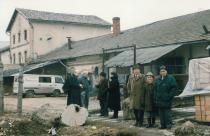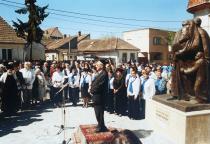This is my union certificate issued after the war, after I came home, in 1954. The local authorities had a separate union, and it included the members of the court and the prosecutor's office. We treated very seriously the work within the union: there were monthly reports regarding especially the professional activities, discipline and other social issues on the agenda. As for the cultural aspect, the union had a very intense activity: choir or reciting poetry were part of it. The choir was comprised of civil servants, judges and prosecutors. There chorus-master was employed. In addition we had an acting group. I wasn't involved in such activities: I had no voice and I wasn't good nor interested in poetry reading. I was rather involved in the social activities.
Each year we organized three balls in the most representative room of the courthouse, which could accommodate some 400 people. These were private dances, and the judges, civil servants, prosecutors and lawyers used to attend them, with their families. These were very interesting and extremely well organized balls, with lottery, live band and dance. They used to last until the morning and were quite famous in the city. People envied us because we could organize these dances in such a room and conditions. From the receipts accumulated from the entrance fees - because everyone had to pay entry money - and the lottery we bought clothes, footwear and coats for the children of the public servants that had small incomes, for the winter. We also made hampers. It was probably a unique cultural activity back then, and we were on top. We organized these balls until the 1970s, when the Ministry of Justice prohibited us from taking alcohol into the building. But without it, the ball is not a ball - so we stopped organizing it. But these collects, the so-called winter aids carried on, and everybody contributed with a certain amount of money, depending on their salaries and possibilities, but we only organized these actions to help the children of the cleaners, drivers, locksmiths, maintenance staff who were working there, and these people weren't few.
We were 11 prosecutors in Vasarhely, and, for a period, I was the public prosecutor. There was one Romanian prosecutor and nine Hungarian ones. And I was the public prosecutor, a Jew. We used to speak Hungarian at the trials. The Penal Code and the Code of Penal Procedure, the Civil Code and the Code of Civil Procedure have all been translated into Hungarian - it was a certified translation from Bucharest. This existed in the 1950s, until the early 1960s, under the Gheorghiu Dej 24 regime. We, the prosecutors, were compelled to speak in Hungarian with the parties who didn't know Romanian. But now they are keeping the silence about it. Why don't they tell people that under the Ceausescu 25 regime, trials could be held in Hungarian in Vasarhely? A year or so ago, when at a trial an old woman couldn't answer the judge, he asked: 'Is there anybody who knows Hungarian?' I said: 'If I may, I will translate.' What a 'great' achievement this is, that you are allowed to speak in Hungarian using an commentator. But there was no such thing before 1989 [the Romanian revolution] 26. There were two lay judges, and if one of them was Romanian, the other one had to know Hungarian. Moreover, they even wanted to draw up the documents and the sentence in Hungarian, as well, but the central leadership rejected this proposal.
I don't want t o praise that period, but I can tell you that in those 38 years I worked there, the prime secretary never called me on the phone to close any case if someone committed a fraud. (Back then the prime secretary was Lajos Csupor. He was a tailor, but he wasn't a dull man at all.) There were situations when we reduced the sentence, that is, we didn't convict the man to five years, but for three, and if it was possible we suspended the sentence, but everything within legal limits. There were instructions to convict people they caught within 24 hours. In 1957-1958-1959, there were cases when they caught peasants coming from the land with a sack of corn, some 20 corn-cobs. They apprehended him, took him in and within 24 hours he was sentenced to two years. I don't say there weren't crimes for which no documents have been drawn up, have not been submitted to the police and the prosecutor's office. Most probably there were such situations. But if a document has been handed to us, we solved them responsibly.
